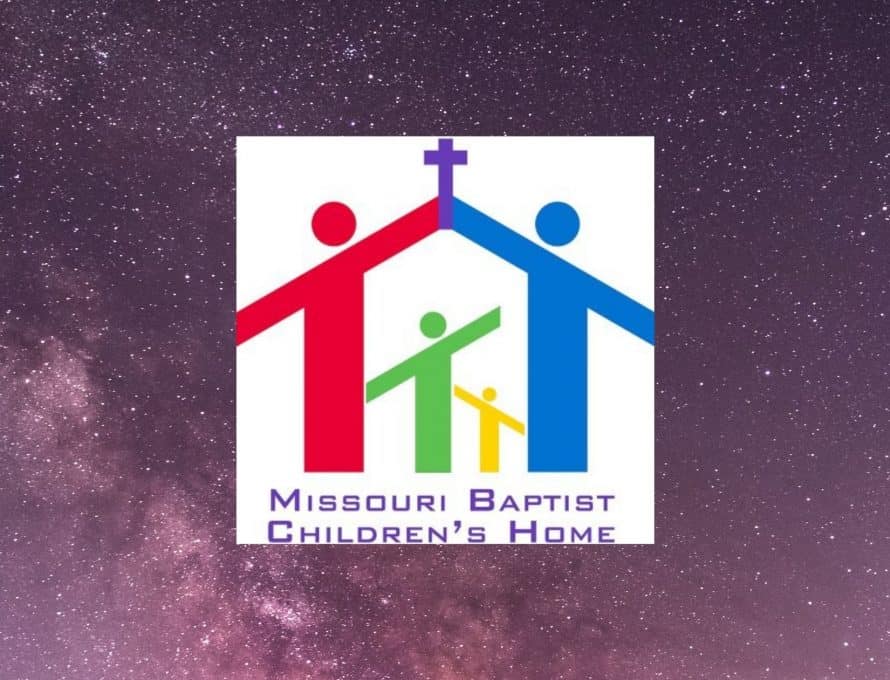(NOTE: The Missouri Baptist Children’s Home encourages you and your churches to celebrate National Adoption Awareness Month in November.)
Back when my husband and I were fostering and the case plans were heading to adoption, I recall thinking, “Things will be easier once the adoption(s) go through.” Boy, was I wrong. Many years removed from the adoptions of our three kids, I now realize that waiting for the Judge to strike the gavel and legalize our adoptions was the easy part.
I’ve been hearing various opinions about adoption and one that struck me was this, “Adoption IS trauma.” At first, I didn’t like the way those words made me feel. I was a bit defensive and not fully taking in the whole spectrum of what adoption is. I can firmly say that I now understand this thought.
Let’s break this down a little. First, please know that I do believe in the redemptive power of adoption – for us in Christ and for many children around the world in need of permanent families. There is hope in adoption. There is strength in adoption, and there is love in adoption. However, behind all of these things, there is loss. There is grief. There are unknowns. There is trauma.
Recently, I overheard one of my kids telling another one of my kids, “Well, your mom didn’t want you and that’s why you’re adopted.” (Keep in mind that ALL of our kids are adopted.)
The one this was said to started to cry, so I comforted this child then went to the one who said it. “Why did you say that? You are all adopted, and it isn’t true. Don’t speak those things because the world may make you feel that way but that is not the truth.”
Our eyes met and my child said words I will not forget: “Mom, the world has already told me this.”
Talk about a punch in the gut and a sting in the heart. Talk about mind-racing thoughts. Could we have done more, said more, loved more? Aren’t we doing enough to pour love into our children? Our home has consistently embraced openness and adoption-positive language. How could it be that one of our kids perceives being damaged goods because of adoption? And that’s when it truly sunk in. For many adoptees, adoption IS trauma.
Is it declaring defeat to acknowledge that trauma and adoption co-exist? No, I don’t believe so. To ignore the rooted-in-the-heart feelings that many adoptees feel is – at least to me – choosing defeat. It’s choosing to only see adoption from one lens – the lens of parents. But, friends, please hear me when I say this. You cannot successfully raise adopted children to be the healthiest version of themselves if you’re unwilling to take off your lenses and perceptions of what adoption means.
For us (adoptive parents), it can be easy to see the wins. We wanted children. We achieved our goal. But, and this is where it might not feel good, a lot of biological parents also want their children. Our children often want their biological parents – even when they can’t express it or have ambivalent feelings.
This doesn’t mean that adoption shouldn’t occur. Because of, and not in spite of, the hardships and grief we’ve faced and watched our children go through, my husband and I stand firm in our belief that adoption changes lives. It opens up worlds. We know this.
A challenge for all adoptive parents and persons seeking to adopt is this – if you truly want to give your heart away to a child in need of adoption, then give it all. Give it all. Let their experiences shape and mold you. Don’t ignore genetics and histories and “pre-you” life experiences. You can’t. These things will come into play and the more aware you are, the better. The more willing you are to live vicariously through your children’s experience, the better. Open yourself up to vulnerabilities. I can’t stress that enough.
Is adoption trauma? Yes, and no and yes, again. Because every single adoption starts with loss. Every single one. There cannot be adoption without loss – loss of family history, loss of biological parents, and loss of culture. It is impossible for this to occur. But, just as loss impacts us all, so does love.
Choose to embrace both.

